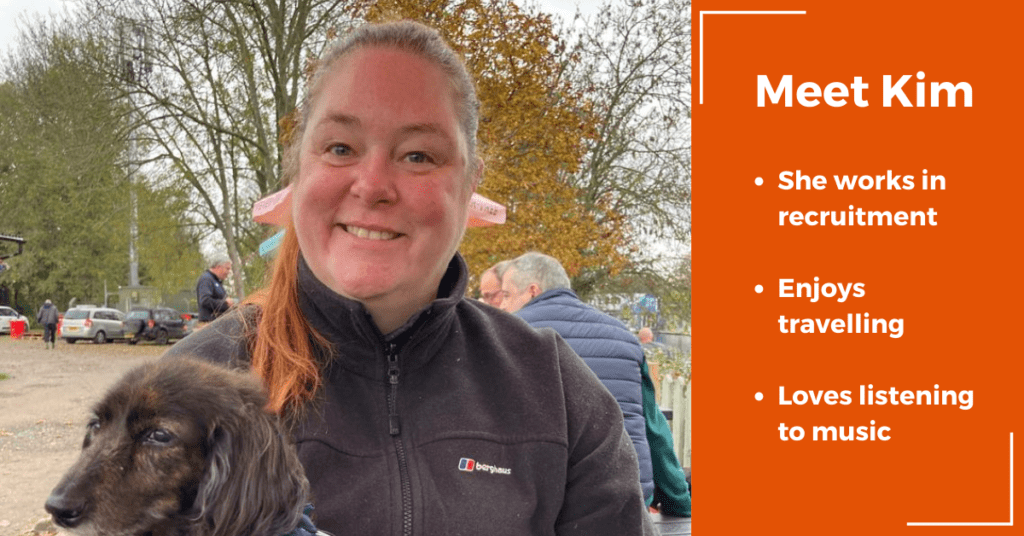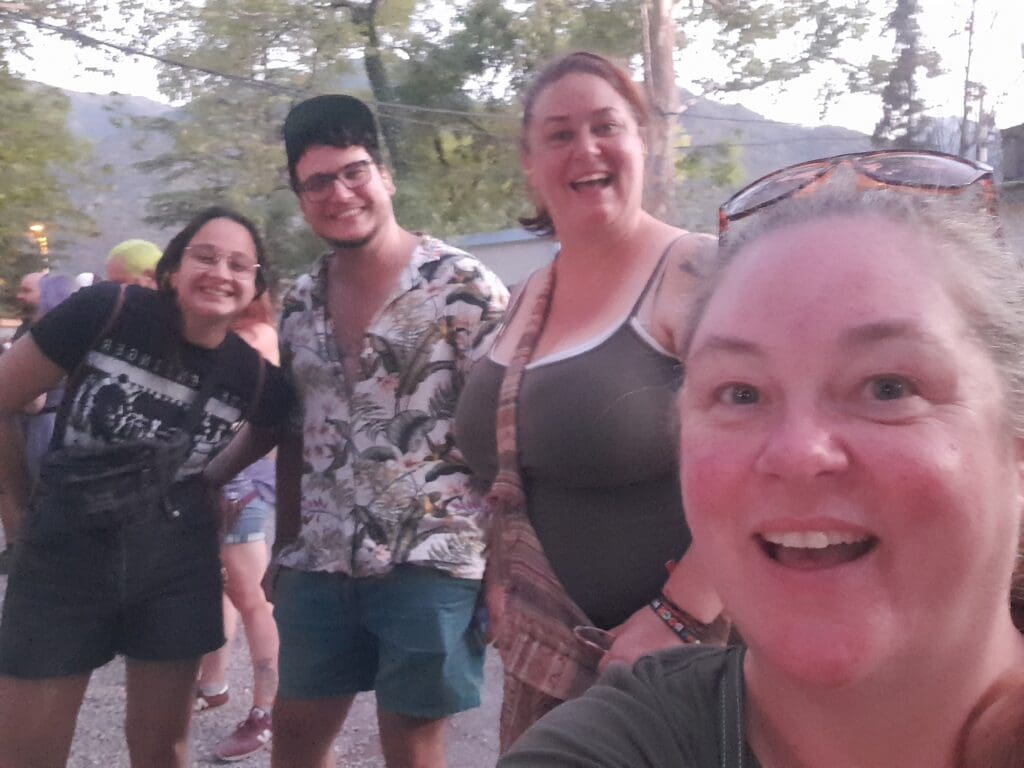Kim’s Story: Mentoring has given me my identity back
1 November 2022

Music lover Kim loves to travel and recently came back from a punk rock music festival. She works part time in recruitment, helping people with disabilities find a job. She is also supporting people affected by Spinal Cord Injury through being a Back Up mentor.
“In 2009, I was involved in a car crash. I had nerve damage from T4 down, but I have an incomplete spinal injury at L2–L3,” Kim explains.
“When I’m indoors, I use my walking stick. But for longer distances and when I’m outdoors, I use a wheelchair because I can’t walk for long periods of time.”
“I spent six months in rehab at the National Spinal Injuries Centre at Stoke Mandeville Hospital, which is where I met Back Up.”
“I had a lot of trauma from my injury, but Back Up was really supportive and encouraging about being able to carry on with life with a spinal cord injury.”
Life after a spinal cord injury
“One of the Back Up team members was always driving to the spinal centres. It completely fascinated me that they could still drive, even though their legs don’t work. It opened my eyes to a lot that was still possible after being injured.”
“I had a mentor through Back Up. She was a mother of three boys and could look after herself and her family, all while having a spinal cord injury. She was a superwoman! I was inspired by her focus and drive.”
“But she shared the same insecurities I did. I learned it was normal to be afraid and have worries. She would just do things to get over her fear, and that blew me away.”
“She inspired me to think of myself as a normal person, not someone with a spinal cord injury.”
Becoming a mentor
“My mentor inspired me to become a mentor too,” says Kim.
“I worried that I wasn’t injured enough to be able to pass on any usable information, skills or scenarios. I would think everyone has a higher level of injury than me. I didn’t value myself or my experience until I was matched with people in a similar situation. Then I realised these feelings are quite normal.”
“When I was in the spinal unit 12–13 years ago, it wasn’t as common to have an incomplete injury, especially as a woman. It was filled with young men who had some sort of sporting injury. All the information seemed to be for men – it was about things like erectile dysfunction. I couldn’t relate to anything.”
“I wanted to be a mentor so that people with a recent spinal cord injury aren’t as alone or lacking in information as I was.”

“My mentor shared excellent advice, but I wasn’t in the right mental space to hear it or make it functional. It’s only when I passed that information on, as a mentor myself, that I heard it differently.”
“It helped me to heal on a deeper level.”
“Before, I was the girl with a spinal cord injury, and I had lost all my identity. I’d lost my values and purpose. Becoming a mentor connected me to people who needed support from someone who understood what they were feeling before they even understood themselves.”
Mentoring gave me back my purpose
“Back Up has been fantastic for me. It’s been more than just mentoring. Mentoring led me to volunteering in the office, which gave me a routine and a purpose. That led me to becoming a paid staff member, which gave me independence.”
“Back up has given me opportunities and the confidence to say yes.”
“If you’re insightful and can advocate for people, you should become a mentor. You’ll be able to pass on that resilience and adaptability to others. By supporting people affected by spinal cord injury to become the best version of themselves, you become a much better version of yourself.”
Inspired by Kim’s story? Become a Back Up volunteer with our award winning mentoring programme


